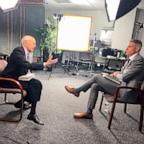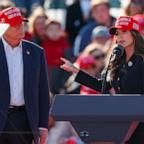Fed keeps rate near zero, tries to ease fears on inflation
WASHINGTON -- Citing a "weak" but improving economy, the Federal Reserve left interest rates unchanged Wednesday and took no further steps to pump cash into stagnant credit channels, moderately disappointing stock and bond markets.
The central bank and its colleagues voted unanimously to keep a key interest rate near zero and reiterated plans to purchase up to $1.75 billion in government debt and securities. However, some economists had expected the policymakers to expand the size or timing of the securities purchases, a strategy that tends to drive down interest rates and mortgage rates, and spur equities markets.
The Dow Jones industrial average fell 23.05 to close at 8299.86 after rising as much as 100 points earlier in trading. Bonds and Treasury prices also dipped and yields rose on expectations that inflation eventually could force the Fed to raise rates.
"Conditions in financial markets have generally improved in recent months," the Federal Open Market Committee said in a statement after its two-day meeting. "Household spending has shown further signs of stabilizing but remains constrained by ongoing job losses, lower housing wealth and tight credit."
The Fed cuts interest rates to lower borrowing costs and spark the economy, and raises rates to head off inflation.
In its statement, the central bank made clear it's still not worried about rising costs, saying "inflation will remain subdued for some time." It added that the "pace of economic contraction is slowing."
After its April meeting, the policymakers voiced some concern about excessively low inflation or deflation that could further stanch economic growth. That was omitted from Wednesday's release.
"It suggests they might be somewhat more willing" to raise interest rates eventually, though likely not within the next year, says UBS economist James O'Sullivan.
Conrad DeQuadros, an economist with RDQ Economics, thought the Fed at least might extend the timing of its securities purchases, which are a less conventional way of driving down interest rates. Earlier this year, the Fed said that by year's end it will purchase up to $1.25 trillion in mortgage-backed securities issued by Fannie Mae and Freddie Mac, an additional $200 billion of their debt and $300 billion of Treasury notes.




